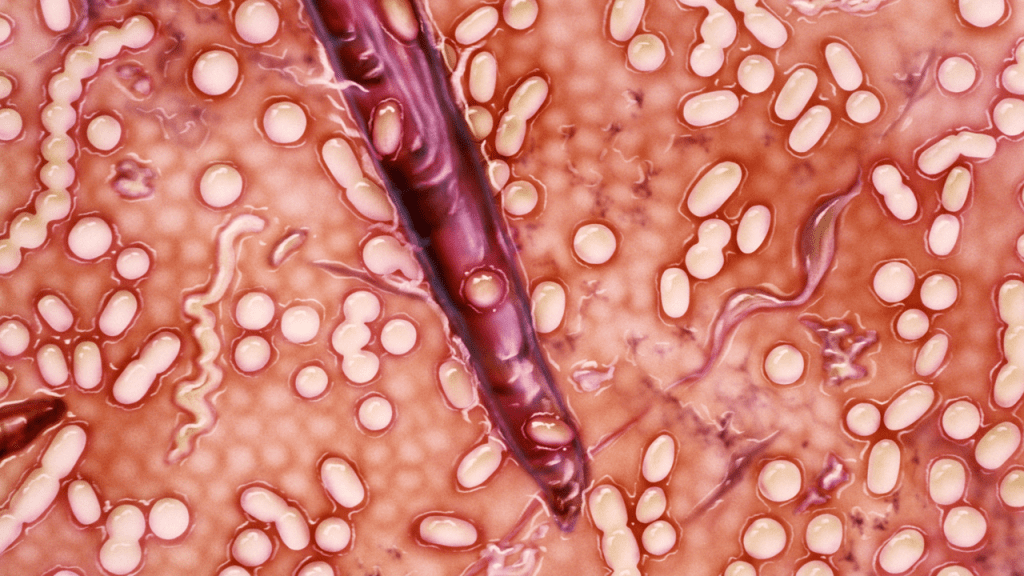Multiple sclerosis (MS) has long baffled scientists and doctors alike. It’s a brutal autoimmune condition where the body’s own immune system turns against the nervous system, damaging the protective myelin sheath around the nerves. This disruption causes a wide range of unpredictable neurological symptoms—from numbness and blurred vision to paralysis. But what if the key to unlocking MS wasn’t just in our genes… but in our guts?
That’s right. Groundbreaking new research is now pointing a curious finger at our microbiome—the trillions of microbes living inside our intestines. Could your gut bacteria be pulling the strings behind MS? Recent studies say it’s very possible.
The Discovery That Changed Everything

According to a powerful new report from NeuroScienceNews, scientists have identified Clostridium perfringens type B as a potential environmental trigger for MS. This isn’t just any bacteria. This specific strain produces a nasty little molecule known as epsilon toxin—a compound capable of breaching the blood-brain barrier. Once it’s inside, it can attack the very myelin that MS patients lose.
Here’s the shocking part: researchers found significantly higher levels of this toxin-producing bacteria in people with MS than in healthy individuals. In plain English? People with MS may be walking around with bacteria in their gut that are literally sabotaging their brains from the inside.
Twin Studies Reveal Even More Clues
To strengthen this link, a twin study conducted in 2025 took things one step further. Researchers compared the gut microbiomes of twins—where one twin had MS and the other didn’t. This eliminated genetics as the sole factor and let scientists focus squarely on the microbial differences.
The results? Two other bacterial culprits were found to be more abundant in the MS-affected twins: Eisenbergiella tayi and Lachnoclostridium. These lesser-known microbes may not sound intimidating, but their presence raises red flags.
And the real kicker? When scientists transplanted gut microbes from MS patients into healthy mice, the mice developed MS-like neurological symptoms. That’s as close to cause-and-effect as science gets without crossing the finish line.
Video : Gut Bacteria That May Trigger MS
Why the Gut-Brain Connection Matters More Than Ever
This research is more than just a fun fact for your next trivia night—it’s a total game-changer in how we think about MS. For decades, the condition was viewed purely through the lens of genetics and autoimmunity. But these new findings add a third, crucial player: the microbiome.
Let’s break it down. If you’re genetically predisposed to MS, certain gut bacteria might tip the scale. It’s like having a lit match and gasoline in the same room. Alone, neither starts a fire. But together? Boom.
These bacteria might ignite your immune system into launching a misguided attack on your nerves. Suddenly, what you ate last month—or even a bacterial imbalance you didn’t know you had—could become the trigger that changes your life.
Could Future MS Treatments Start in the Stomach?
This revelation is more than just fascinating—it’s full of real-world potential. Imagine a future where MS treatment doesn’t just involve managing symptoms with steroids or immune-suppressing drugs, but starts with restoring balance in your gut. That future might not be far off.
Here’s what might be on the horizon:
- Targeted probiotics designed to crowd out harmful bacteria
- Prebiotics that encourage the growth of healthy gut flora
- Microbiome transplants (yes, like fecal transplants) to reset the balance
- Precision antibiotics that destroy only the offending bacteria, not the whole microbiome
This could open new doors for MS diagnostics, prevention, and long-term management—especially for those who are genetically at risk but not yet symptomatic.

How This Changes Everything About MS
For patients, this research offers more than hope—it offers a shift in power. MS has always felt like a cruel twist of fate, something you either inherited or didn’t. But if gut health plays a role, then lifestyle, diet, and even specific treatments might help alter the course of the disease.
Of course, it’s important to be cautious. These studies don’t prove gut bacteria alone cause MS. We’re not there yet. But what they do show is a clear and dangerous pattern that can’t be ignored.
Think of it like solving a mystery. Genetics and autoimmunity are two suspects. But now, gut microbes have joined the lineup—and the evidence is stacking up fast.
The Bigger Picture: Microbes and Modern Disease
This isn’t just about MS. Scientists are beginning to understand that gut bacteria may be linked to a range of diseases, from Parkinson’s and depression to obesity and diabetes. Our intestines may be ground zero for inflammation, immunity, and even brain function.
Why does this matter? Because it puts us back in the driver’s seat. If what we eat, how we live, and how we treat our bodies can influence our gut bacteria, then we may have more control over chronic diseases than we thought.
Video : The first symptoms of my
Let’s Recap: A Revolution in MS Research
Here’s what you need to remember:
- Researchers have identified Clostridium perfringens type B and its epsilon toxin as major suspects in triggering MS.
- Eisenbergiella tayi and Lachnoclostridium are also linked to the disease.
- Transferring MS patient microbiomes to mice caused MS-like symptoms, showing a likely connection.
- These findings suggest MS is not just genetic or autoimmune, but also microbiome-related.
- Future treatments might focus on balancing gut bacteria, offering new hope to millions.
Conclusion: It’s Time to Look Deeper
This discovery doesn’t just bring us closer to understanding MS—it could help us finally beat it. By shifting focus to the gut-brain axis, scientists are opening an entirely new chapter in medical science. If we continue down this path, we may not only prevent MS—but also learn how to rewire immunity itself.
And maybe, just maybe, a healthier future starts right in our gut.


